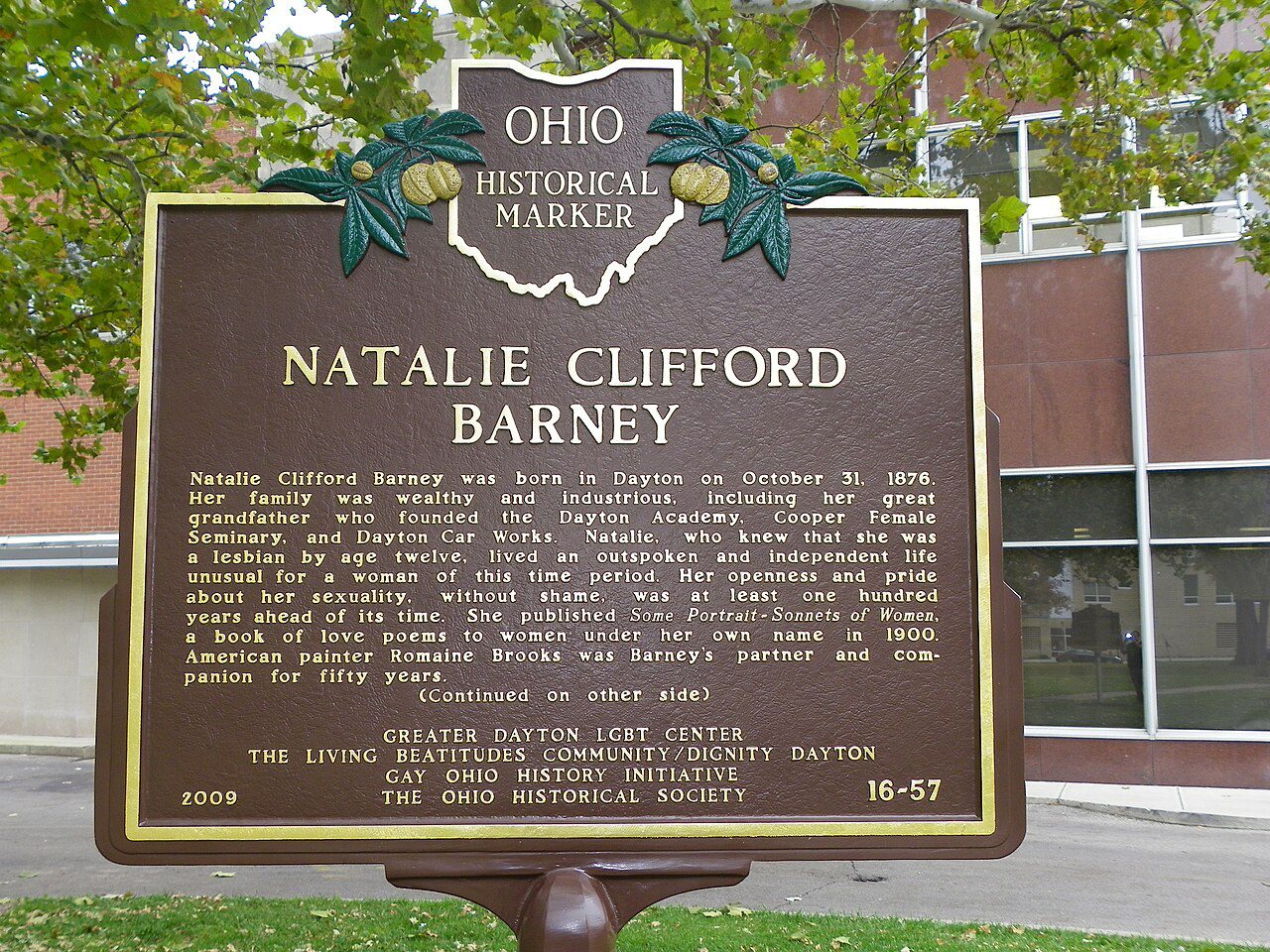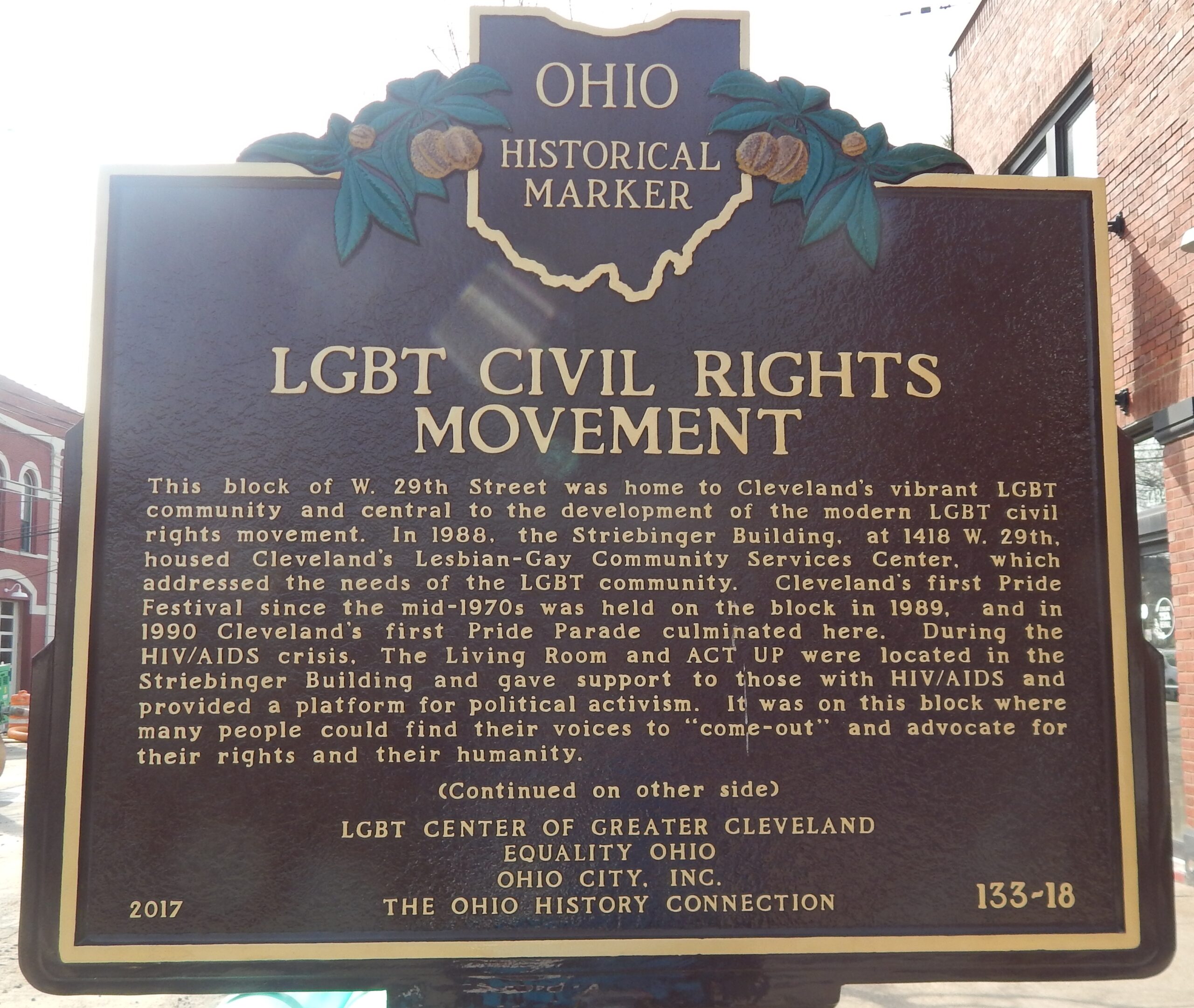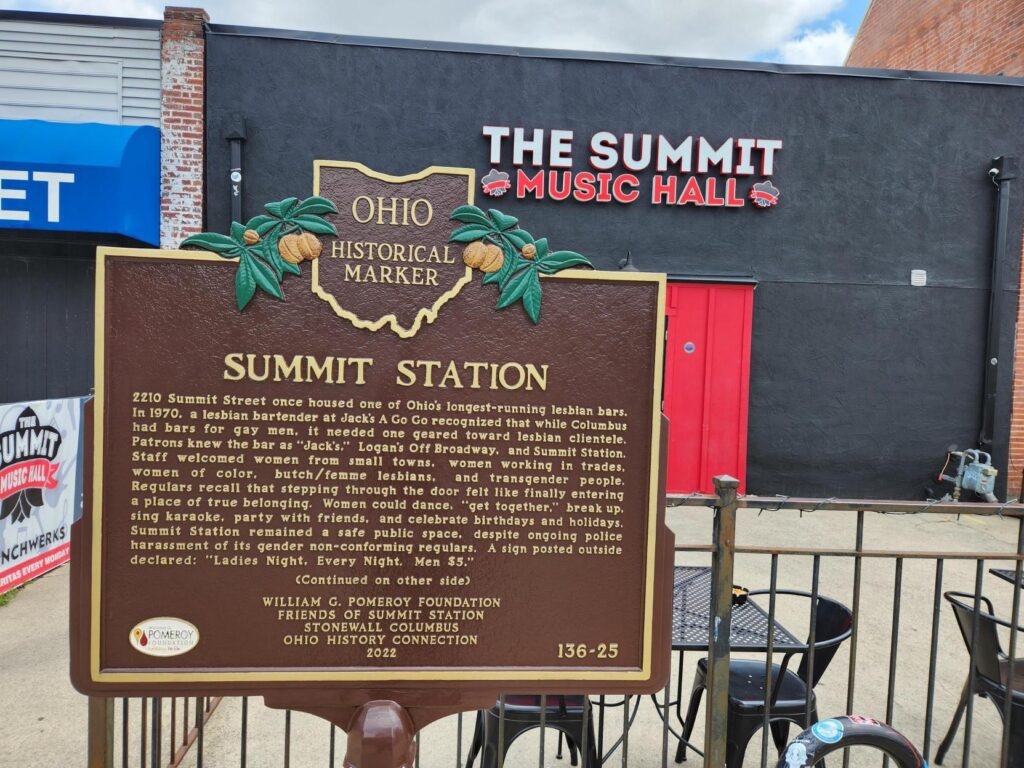LGBTQ+ Ohio Historical Markers
LGBTQ+ Ohio Historical Markers
LGBTQ+ Ohio Historical Markers
The Ohio Historical Marker program at the Ohio History Connection is a great way to acknowledge place-based history. GOHI is working with community partners to identify and install historic markers that recognize important people, events, and places in Ohio LGBTQ+ history. Find out more about the Ohio Historical Marker program or contact us if you have an idea for a LGBTQ+ Historical Marker.
Natalie Clifford Barney was born in Dayton on October 31, 1876. Her family was wealthy and industrious, including her great grandfather who founded the Dayton Academy, Cooper Female Seminary, and Dayton Car Works. Natalie, who knew that she was a lesbian by age twelve, lived an outspoken and independent life unusual for a woman of this time period. Her openness and pride about her sexuality, without shame, was at least one hundred years ahead of its time. She published Some Portrait-Sonnets of Women, a book of love poems to women under her own name in 1900. American painter Romaine Brooks was Barney’s partner and companion for fifty years.
Natalie Clifford Barney moved to Paris, France in 1909 where she wrote fiction, verse, essays, drama, epigrams, and several memoirs. She hosted an infamous literary salon for fifty years where the leading writers and artists of the time gathered. In 1927, she formed a group to honor female writers because the French Academy was limited to men. Barney repeatedly sought to advance the rights of women and is considered a top French feminist writer of the 20th century. She was the inspiration for characters in at least twelve books, including Valerie Seymour in the Well of Loneliness. Barney died in 1972 and is buried in Paris while her parents are interred in Dayton in Woodland Cemetery.

This block of W. 29th Street was home to Cleveland’s vibrant LGBT community and central to the development of the modern LGBT civil rights movement. In 1988, the Striebinger Building, at 1418 W. 29th, housed Cleveland’s Lesbian-Gay Community Services Center, which addressed the needs of the LGBT community. Cleveland’s first Pride Festival since the mid-1970s was held on the block in 1989, and in 1990 Cleveland’s first Pride Parade culminated here. During the HIV/AIDS crisis, The Living Room and ACT UP were located in the Striebinger Building and gave support to those with HIV/AIDs and provided a platform for political activism. It was on this block where many people could find their voices to “come-out” and advocate for their rights and their humanity.
The Lesbian-Gay Community Center and other organizations were joined by gay bars in the building and on the block: Ohio City Oasis, Mana’s World, Tool Shed, and Crossover. Around the corner, at Detroit and W. 32nd Street, was Club Cleveland, a gay bathhouse and gathering place, which existed in various buildings in the area for decades until it closed in 2009. Across Detroit Avenue, Union Station and Bounce Nightclub added to the critical mass of LGBT culture that centered around W. 29th Street.

2210 Summit Street once housed one of Ohio's longest-running lesbian bars. In 1970, a lesbian bartender at Jack's A Go Go recognized that while Columbus had bars for gay men, it needed one geared toward lesbian clientele. Patrons knew the bar as "Jack's," Logan's Off Broadway, and Summit Station. Staff welcomed women from small towns, women working in trades, women of color, butch/femme lesbians, and transgender people. Regulars recall that stepping through the door felt like finally entering a place of true belonging. Women could dance, "get together," break up, sing karaoke, party with friends, and celebrate birthdays and holidays. Summit Station remained a safe public space, despite ongoing police harassment of its gender non-conforming regulars. A sign posted outside declared: "Ladies Night, Every Night. Men $5."
By the 1980s, Summit Station was considered "the largest women's bar in Columbus." It regularly hosted lesbian musicians, comedians, DJs, an all female dance troupe, dart and billiards leagues, drag king and dyke queen performers. In efforts to give back to its community, Summit Station held benefits for the Children's Hospital FACES program to support women and children affected by HIV, Buckeye Regional Anti-Violence Organization (BRAVO), Stonewall Union, and the Columbus AIDS Task Force. The bar also sponsored local sports teams as well as the Pacesetters, the longest-running team in the National Women's Football League. Although the Short North Gazette declared Summit Station the city's "longest-standing gay and lesbian bar" in 2007, it was closed by 2008. For nearly forty years, Summit Station provided the LGBTQ+ community a welcoming space in Columbus.

